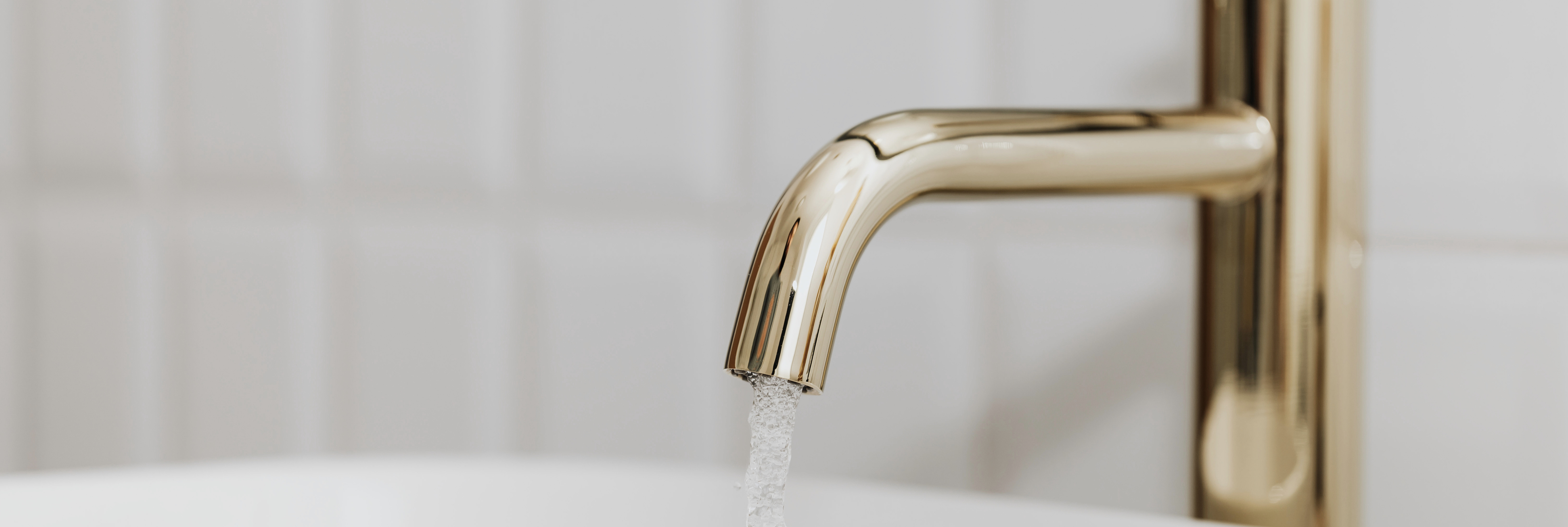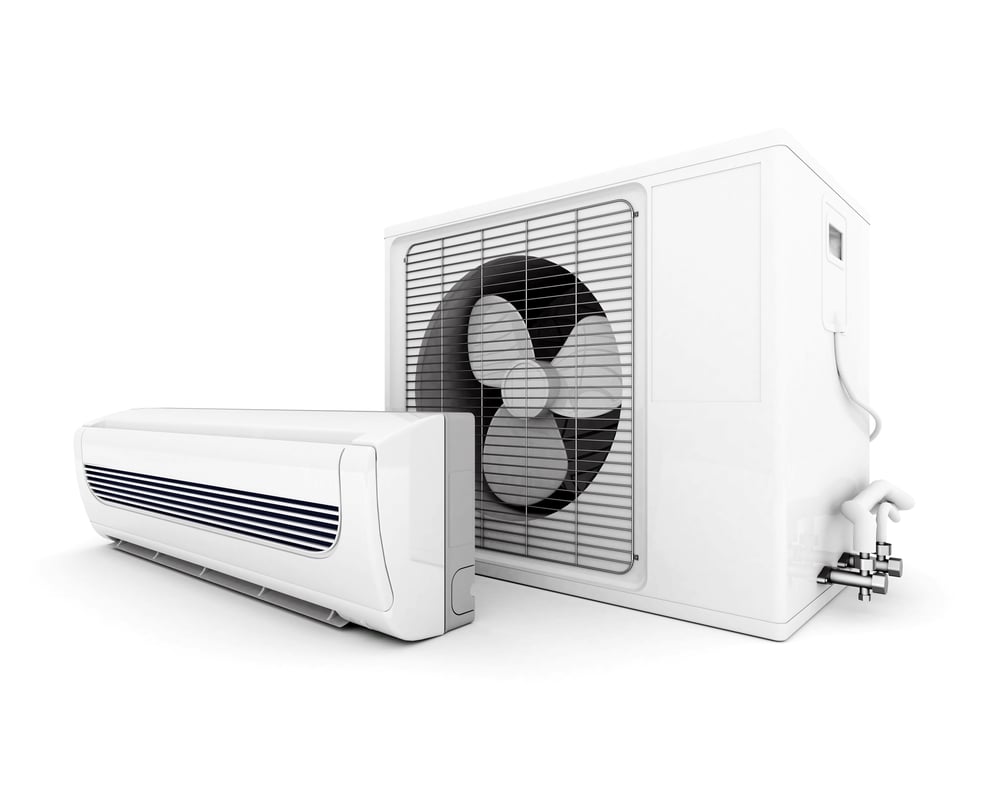Most homeowners don’t think about their plumbing until a problem arises. Whether it's a simple clogged pipe or drain, or a broken sewer line, plumbing problems can be a real headache. But all of this can be avoided by doing regular maintenance on their home’s plumbing system.
Why Plumbing Maintenance is Key
Proper plumbing maintenance is necessary to ensure that your pipes continue to drain and work properly. Here are some key reasons you should invest in regular plumbing maintenance.
- Increased Plumbing Lifespan - Weak or leaking pipes that are ignored and not taken care of can reduce the lifespan of your pipes and affect your water-using appliances, including water heaters, washing machines, and dishwashers. Undetected leaks can leave rust, mold, and pipe corrosion and cause damage to your appliances.
- Save Money - Sure, a single drip won't waste much water but think about a faucet in your home dripping a little bit all day long over a long period. One drip per minute from one faucet in your home adds up to about 1,440 drips a day, or 34 gallons per year (Source: USGS). That is money that is leaving your wallet due to high water bills!
- Avoid Air Quality & Health Issues - Leaking pipes leave behind puddles of water which are breeding ground for mold, mildew, and other issues that affect air quality. It could be worse if the leak is hidden behind the walls and ceiling. Get your plumbing checked on the regular to ensure you and your family are not breathing in mold and dangerous air particles.
Seasonal Maintenance
Seasonal changes can affect your pipes, drains, and other parts of the plumbing system. Be sure to perform seasonal plumbing maintenance.
Spring Plumbing Maintenance
As winter ends and temperatures rise, homeowners should take steps in preparing their home's plumbing for the Spring.
- Check Your Pipes for Leaks - Colder temperatures cause the pipes and walls that encase your home's interior systems to shrink and cause small leaks. These leaks are temporarily filled by frozen water. But when that ice melts, the leaks can become apparent and cause water damage. Check for any obvious leaks in your drainage pipes to avoid a much larger cleanup. You can do this by looking for mold or water stains surrounding your pipes that may indicate a small leak. If you notice a drop in water pressure in your faucets, shower, or other areas, it could also be a sign of a leakage.
Pro Tip: Take a reading of your water meter and avoid using your water for a few hours. If you see a change in the reading at the end, it could signal a leak in your plumbing. - Outdoor Spring Cleaning - Picking up sticks and raking leftover leaves from Fall might be a way to make your lawn more presentable, but spring cleaning supports your plumbing too.
- Clean out your gutters to prevent clogs that can lead to water damage and leaks.
- Turn on outdoor faucets to make sure they’re not leaking or broken. Contact a technician if you see any issues.
- Check Your Sump Pump - Sump pumps help to make sure that your basement and crawl spaces stay dry. Chances are your sump pump will be working extra hard with snowmelt and spring showers. Make sure your sump pump is working properly by first visually inspecting it. Look for any obvious signs of damage to the drain and tank. Then, test it by pouring water into the pit and making sure it drains properly.
Summer Plumbing Maintenance
If you have a septic system, Summer is the ideal time to have it inspected. Water from springtime rain storms can cause backups in your sewer line. Get it inspected to prevent long term damage. Here are some other tips for summer:
- Get your septic system pumped.
- If you have trees with problematic or large roots, consider having them removed to avoid issues with your sewer system.
- Clean your gutters - Spring and summer can leave your gutters clogged with leaves, twigs, and debris. Clean them so that you don’t end up with drainage problems later in the year.
- Clean debris and other items from the sprinkler system heads and make sure they work properly.
Fall Plumbing Maintenance
As temperatures begin to drop and leaves start to pile up, this is the perfect time to prepare your plumbing for the cold winter days.
- Disconnect outside water hoses - Disconnect and drain to ensure any leftover water has been removed. If left connected, water in the hoses can freeze and expand causing connecting faucets and pipes to freeze and break.
- Cover outside faucets using a Styrofoam - These insulation kits can be easily found at home centers. This cheap and affordable option helps protect your outdoor faucets from freezing temperatures and keep the outside cold out.
- Clear out your home’s gutters - Gutters need to remain free of debris so that water can easily drain as it freezes and thaws throughout fall and winter. Clear leaves and debris from outside gutters and downspouts that may block water from flowing and draining. This helps to ensure easy drainage when water freezes and thaws throughout the winter season.
- Check your water heater - Testing your water heater can help reduce the chance of a leak caused by mineral and corrosion buildup. Start by setting your water heater’s thermostat to 120°F for optimum performance. Then, test the water heater's pressure relief valve by lifting on the lever and letting it snapback. If hot water doesn’t rush out of the end of the drainpipe, call a professional to have a new valve installed.
- Insulate or cover exposed piping - Most homeowners make the mistake of not insulating piping in a garage, crawl space, under your porch, or in other enclosed, but unheated areas. But they are just as vulnerable to freezing as other outside pipes. Avoid frozen pipes in the winter by insulating all exposed pipes in unheated areas of your home.
Winter Plumbing Maintenance
- Run water from every valve in your house regularly to prevent them from freezing.
- Insulate your pipes. You can use foam sleeves or special insulating tape to guard against freezing. Insulation is an inexpensive preventive measure against what could otherwise be a costly problem.
- Maintain the flow of your drains to prevent clogging. A simple mixture of 1-cup salt, 1-cup baking soda, and 1/4-cup cream of tartar dissolved in boiling water is all you need to prevent clogged drains. Pout the mixture down your kitchen and bathroom sinks every three or four months. Allow the solution to sit for 15 minutes, then wash it down with 2 cups of boiling water in each drain to clear up drains.
- Inspect your water heater for buildup and corrosion. Any rust or cracks along the metal can lead to water leaks and an insufficient supply of warm water during the cold winter days.
- Inspect the sump pump for buildup and proper drainage. The sump pump is usually located in a basement or crawl space and helps rid the house of pooling water. If you see any signs of trouble, contact a plumber immediately.
- Maintain a temperature of at least 55°F in your entire house to prevent pipes from freezing.
Daily/ Weekly Maintenance Tips
Besides the seasonal plumbing maintenance, there are things you can do daily & weekly to prevent clogs and make sure your plumbing stays in tip-top shape.
- Never put fibrous food down your garbage disposal because the stringy material can tangle up inside the unit. This includes banana peels, celery, kale and lettuce, artichokes, asparagus, and other foods that are hard to grind.
- Never put non-food items in the disposal, including paper towels, candy wrappers, and cardboard.
- Add shower screens over the drain to prevent hair and other debris from going down the drain.
- Clean your lint traps inside your washing machine to prevent the lint from clogging your pipes.
- Make sure your water heater is set to 125 degrees for best performance and longevity of your home’s water heater.
- Don’t flush anything other than toilet paper down the toilet. Even the so-called “flushable” wipes can lead to nasty clogs in your plumbing system.
- NEVER ignore any small leaks in your house. Either fix the leak immediately or call a plumber.
Plumbing systems require regular maintenance and upkeep. But even if you properly maintain your system, there are still instances where you have an emergency situation. Because of this, A. Borrelli mechanical offers a 24/7 Emergency Service. If you are experiencing an issue that constitutes an emergency, turn off your system immediately and call us at 914.301.7495.














